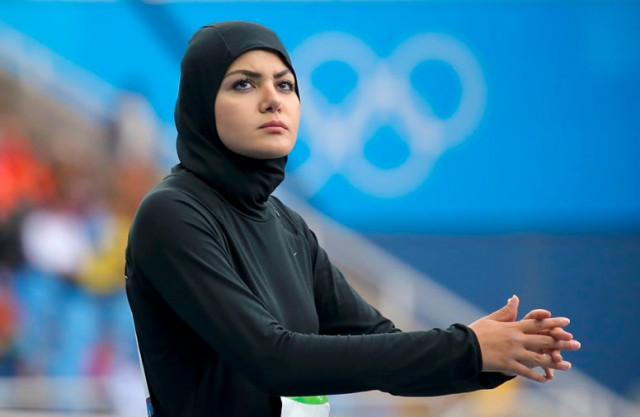Saudi Arabia introduces physical education for schoolgirls in break from tradition
The Saudi government has in recent years begun introducing gradual reforms to open new opportunities for women

Kariman Abuljadayel competes in 2016 Rio Olympics preliminary Women's 100m Round at Olympic Stadium, Rio de Janeiro, Brazil on August 12, 2016.
PHOTO: REUTERS
Physical education for women is controversial in Saudi Arabia, where conservatives consider it immodest, and it is not mandatory. It has not been offered in most public schools. "Sports is empowerment," said Lina Almaeena, a member of the advisory Shura Council who founded the kingdom's first female sports club, basketball team Jeddah United. "It's a historic announcement."
President lauds Saudi Arabia’s efforts for facilitating pilgrims
Saudi Arabia adheres to strict interpretations of Islamic law and tribal custom, requiring women to have male guardians and obey a modest dress code. They are barred from driving. However, the Saudi government has in recent years begun introducing gradual reforms to open new opportunities for women and expand their participation in the labour force. The Shura Council approved the introduction of physical education for girls in 2014, but the decision was never implemented as it faced opposition from clerics who decried it as 'Westernisation'.
Earlier this year, the council opened the door to licensing women's gyms, which were previously in legal limbo. "One of our challenges was always the logistics. We didn't have sports facilities in schools. Another challenge was instructors, so now they've started on training the trainers," said Almaeena. The government has appointed Princess Reema bint Bandar to lead a women's section of the national General Sports Authority.
Pakistani ‘drug trafficker’ beheaded in Saudi Arabia
The kingdom sent two female athletes to the Olympics for the first time in 2012, and four to the 2016 games. Authorities have increasingly framed the issue of women's sport in health terms to overcome conservative objections. Saudi Arabia has high rates of obesity. According to the kingdom's Vision 2030 reform plan, introduced last year, only 13 per cent of the Saudi population exercises at least once a week. The plan aims to boost that number to 40 per cent.
Saudi Arabia struggles with high rates of obesity, which place pressure on its health system. The kingdom's Vision 2030 reform plan is seeking to address the issue by introducing more sports and leisure activities.



















COMMENTS
Comments are moderated and generally will be posted if they are on-topic and not abusive.
For more information, please see our Comments FAQ